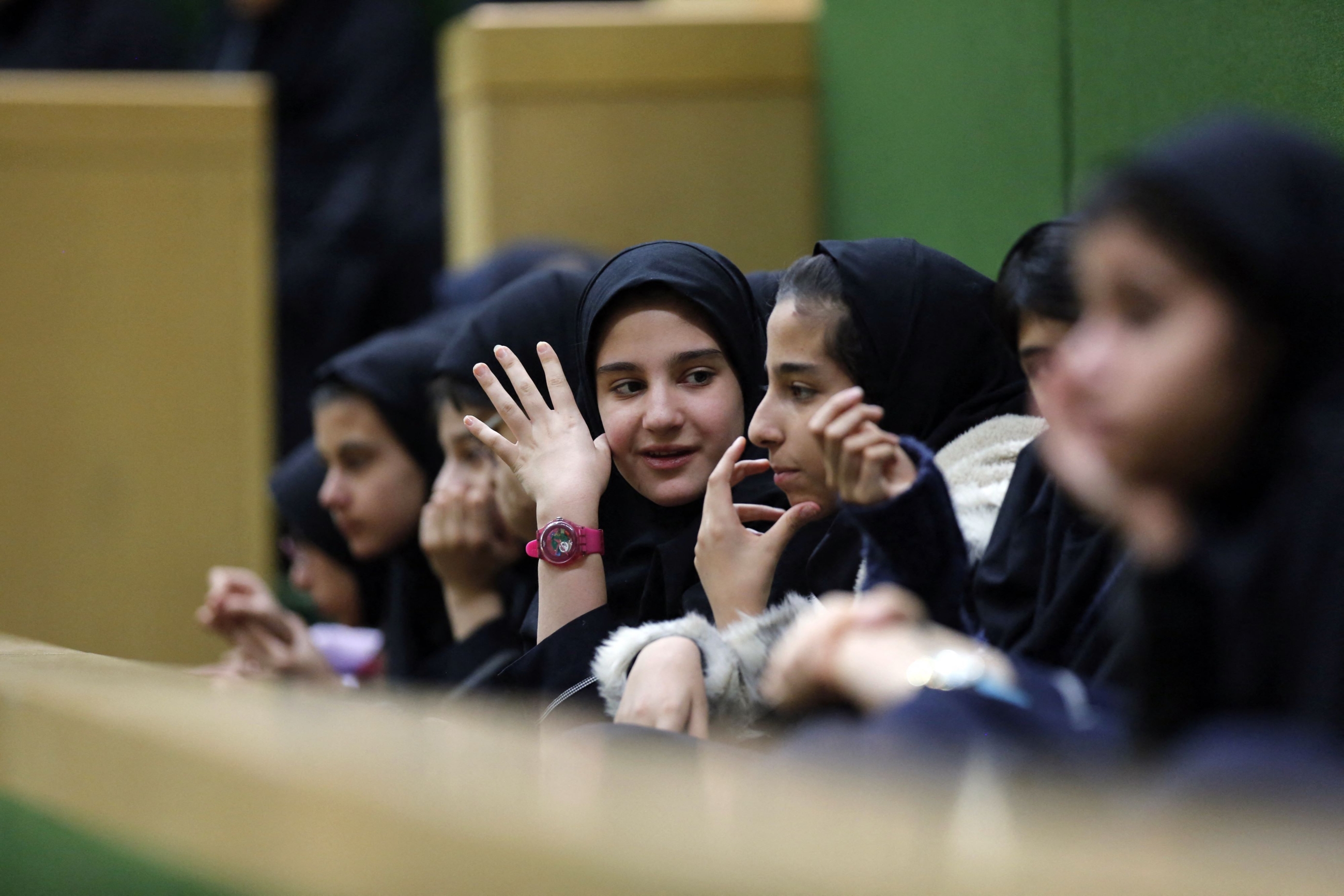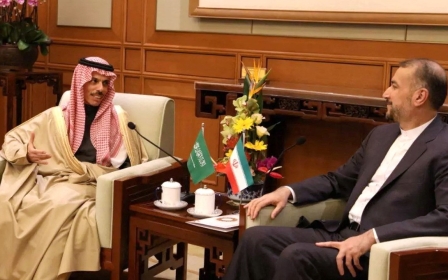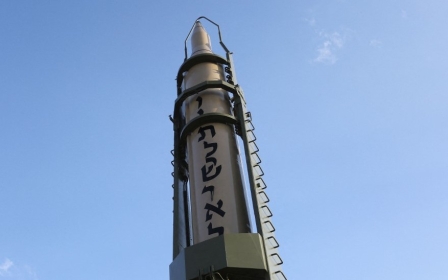Iranian press review: Schoolgirl poisonings resume following Nowruz holiday

Gas attacks on girls' schools continue
Toxic gas attacks on girls' schools in three different cities in Iran resumed immediately following the reopening of schools after the Nowruz holiday, sparking fear and concern across the country.
Local media reported that three schools in Naqadeh, Isfahan and Tabriz were targeted.
Five students at the 22nd of Bahamn school in Naqadeh fell ill and were hospitalised on Monday. Eight students at the Sahar girls' high school in Isfahan and 20 in Tabriz were admitted to hospital a day later.
The reports added that the schoolgirls suffered from respiratory problems, nausea and dizziness, and all were discharged within a few hours.
New MEE newsletter: Jerusalem Dispatch
Sign up to get the latest insights and analysis on Israel-Palestine, alongside Turkey Unpacked and other MEE newsletters
Between 30 November 2022 and 6 March 2023, over 5,000 students from 230 schools were hospitalised in 25 provinces after poisoning attacks on girls' schools.
On 15 March, during the last days that schools were open in the previous Persian year, the authorities announced that Iran's intelligence ministry had arrested 110 people behind the attacks.
Despite the arrests, the authorities have failed to explain the motivation behind targeting girls' schools with toxic gas.
'Can we have any hope?' asks a journalist
In a passionate article for Ensaf News, an Iranian journalist, Omid Kajian, portrayed a bleak year ahead for many Iranians in the face of economic crisis and government repression.
"With no hope, we began the new year. In the days coming, what will give us the strength to open our eyes one morning after another? What will warm our hearts? Maybe just our vanished hope!" Kajian wrote, in the introduction to his article.
The brutal crackdown on anti-establishment protests, the increasing pressures to enforce the hijab law, and the country's worsening economic crisis have left many Iranians hopeless about the future.
"Can we have any hope in the future that you, the officials, have envisioned for us? Have you seen the long lines in front of foreign embassies made by the people attempting to leave their homeland at any cost," he added.
"How savagely you killed our future! You burnt our past, and what has remained is us and the present time, which is getting worse each day. What do you want from these people? Let them be. We carry the heavy weight of our bitter memories, so don't rub salt into our wounds."
Anger at Russian guests' ingratitude
Iranian football coaches and media have hit out at criticism made by Russian football players who complained about the food, Tehran's dangerous air quality and poor internet access while they were in Iran for a friendly competition on 23 March.
Following the return home of the Russian squad, team members in different interviews expressed their discontent with Iran's hosting and the low standard of the pitch at the Azadi stadium in Tehran.
On Tuesday, the Shargh daily wrote that many ordinary Iranians agreed with what the Russians said, despite the Iranian sports officials' disappointment about their criticism.
"Some said that the complaints showed the Russians' ingratitude, but others agreed with them, specifically regarding slow and limited internet connection," wrote Shargh.
The daily added that due to an international ban on Russia's national team because of the war in Ukraine, only very few countries, such as Iran, will host their teams.
"On the days that Russian champions are banned from participating in international competitions, Iran rolled out the red carpet for them and assisted them in getting out of isolation. But apparently, understanding this situation makes no sense for the Russian players," Shargh concluded.
Hundreds died in new year car accidents
Road accidents during the Nowruz holiday killed 821 people and injured over 15,900, according to the country's traffic police commander, brigadier general Kamal Hadianfar, quoted in local media.
The Nowruz holiday is the busiest time for domestic tourism in Iran, and millions of people take advantage of the occasion to make long road trips. Every year during this holiday, the number of deadly car accidents rises.
This year the official holiday lasted from 20 March to 2 April. However, heavy traffic began on 16 March, and the figures announced by the traffic police related to a 19-day period, indicating that the daily death toll from road accidents exceeded 43.
The traffic police said that breaking the speed limit, illegal overtaking, and drivers' drowsiness were the causes of 82 percent of car accidents during the holidays.
According to experts, substandard cars manufactured in the country and unsafe roads are other leading reasons for Iran's high number of fatal road accidents.
* Iranian press review is a digest of reports that are not independently verified as accurate by Middle East Eye
Middle East Eye delivers independent and unrivalled coverage and analysis of the Middle East, North Africa and beyond. To learn more about republishing this content and the associated fees, please fill out this form. More about MEE can be found here.





